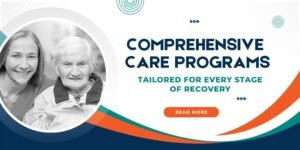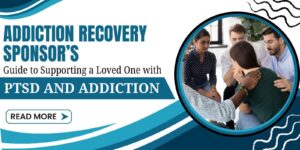Opioids and opiates are very powerful pain relievers that have extensive use in the medicinal field and opiate addiction treatment. These powerful analgesics however come with a peril of misuse and addiction. It is a huge public health concern and this is a reason why it is necessary to monitor its use.
A huge misuse of prescription opioids has been seen and this has led to a spurt in addiction cases. An addict is usually sent to an in-patient or outpatient opiate addiction rehabilitation center depending upon the severity of his/ her symptoms and the level of addiction. There are so many opium addiction treatment centers where the addict is sent to receive treatment.
Opiate is a class of drugs that are developed from a naturally occurring substance, opium that is found in the opium poppy plant. These drugs are usually used for their pain-relieving properties. They attach to the pain receptors in the brain and spinal cord and help alleviate the pain in the body.
These days the term ‘opioid’ is used broadly and even encompasses artificially made drugs that reduce pain. Some of the common synthetic opioids are tramadol and fentanyl.
The terms opioids and opiates are generally used interchangeably. Nevertheless, they do not mean the same.
Opiates refer particularly to substances that come directly from the opium poppy plant. This term includes under its ambit natural alkaloids found in opium, like morphine and codeine. These substances are present in the opium poppy naturally. They have been used for their pain-relieving properties since time immemorial.
Opioids is a broader term and encompasses a much wider range of substances. It includes natural, semi-synthetic, and fully synthetic compounds. They act on the opioid receptors in the brain and produce effects that are quite similar to what opiates produce.
Our navigators will help you take back control of your life.
When you call our helpline, an admissions navigator is there to listen to you, answer any questions you have, and provide the support that you need—all 100% confidentially.
Opiates are of different types. Their categorisation is done on the source from which they are derived.
Some common types of opiates are stated below:
- Morphine- It is one of the most widely used opiates. It is a very powerful pain reliever and is usually used in cases of severe pain such as post-surgical pain or pain that is linked to cancer.
- Codeine- This is also a well-known opiate. This is less powerful than morphine. It is used in cough suppressants
- Thebaine- This is very less pain-relieving properties; however it serves as a precursor for the synthesis of other opioids.
- Heroine- This is derived from morphine. It is highly addictive. It leads to euphoric effects in the body. The use of heroin is illegal.
Opiates and opioids are used interchangeably but there are differences between them. Opiates are naturally existing pain relievers and are derived from opium poppy. On the other hand, opioids encompass not only natural but also synthetic and semi-synthetic drugs that interact with pain receptors in the body and cause pain relief effects.

If a person is addicted to opiates, he/she should go in for Opiate Addiction Treatment from a well-known Opiate Addiction Rehab Center. At a good Opiate Addiction Rehab Center, the patient will get the right kind of treatment to help him/ her come out of the problem and become clean.
There are so many reasons why an individual gets addicted to opiates. Some of the reasons are stated below :
- Pain Management- As opiates are prescribed for pain management due to medical reasons, in a lot of cases, patients get hooked on them as it gives them relief and comfort.
- Pleasure- Many people get addicted to opiates as it gives them a sense of euphoria and relaxation. Stress is huge these days and so just to counteract that stress people start taking opiates and get addicted to them.
- Self-Medication for Emotional Pain- When people suffer from emotional pain, opiates provide them temporary relief. It is a way to escape from the grim realities of life. Over time this leads to addiction
- Genetic Disposition- Some people have a genetic predisposition to addiction. Their brain responds to the opiates and their chances of getting hooked on them are huge.
- Co-occurring mental health disorders- People with co-occurring mental health disorders such as anxiety, depression, or post-traumatic stress usually get afflicted with opiate addiction. People get addicted so that they cope well with these disorders.
- Prescription misuse and diversion- Opiate addiction can also occur when individuals misuse prescription medications or when prescribed medications are diverted for non-medical use. This can happen when individuals take higher doses than prescribed.
Check to see if your insurance is in-network at an American Addiction Centers location
We’ll instantly check the coverage offered by your insurance provider.
Opiates have a lot of effects on both mind and body. Even though their prime purpose is pain relief, they lead to so many other effects on the body. Mentioned below are some common effects of opiates on the body:
- Pain Relief- This is the key impact of using opiates. They glue to pain receptors and reduce the perception of pain
- Euphoria- Opiates lead to feelings of pleasure and euphoria in the body. This is because when you consume opiates, dopamine is released in the bloodstream and this leads to relaxation
- Sedation- Another common effect of opiates is drowsiness. When a person takes in opiates there is reduced alertness in the body. Another effect is impaired coordination.
- Respiratory Depression- One of the key risks linked with the use of opiates is respiratory depression. The breathing slows down and this can be life-threatening for a person.
- Constipation- Opiates have a negative impact on the digestive system. They cause constipation and this can be an uncomfortable condition for most of the people
- Addiction- Prolonged use of opiates can lead to addiction. When a body of an individual becomes reliant on drug, it cannot act normally when you do not consume the same. Compulsive drug seeking behaviour is extremely risky and leads to ill effects in the long run.
- Nausea- Another effect of opiates is nausea. A person might feel extremely nauseous after consuming opiates
So, these are some of the effects of consuming opiates. Only consume the recommended dosage by your doctor according to the problem that you are suffering from.
Overcoming opiate misuse calls for a comprehensive approach that encompasses medical social and psychological interventions. The first step is to recognize that you are suffering from opiate addiction. Only then can you take steps to resolve the same.
It is vital to seek professional help. Get in touch with an addiction specialist who can provide you with the right guidance, support, and appropriate treatment options. A specialist will analyze the severity of your case and will recommend a course of treatment accordingly.
The path to recovery for an addict is not easy. The first thing to do is to seek the help of a healthcare professional who can chart your recovery journey. In case a person is dependent on opiates a medically supervised detoxification is needed. This will ensure maximum safety and minimum discomfort. Sobriety is achievable with the right support, treatment, and a commitment to change
Opiate Addiction Treatment
This includes the use of medicines such as naltrexone, buprenorphine, etc along with counseling and behavioral therapies to come out of addiction. With medication, there is a marked reduction in cravings and withdrawal symptoms. The addiction specialist will offer a treatment plan in congruence to your specific needs.
Medications and Therapy
Another integral part of treatment is therapy and counseling. Evidence-based therapies such as cognitive-behavioral therapy (CBT), dialectical behavior therapy (DBT), or motivational interviewing can help a person build up coping skills, spot triggers, and recify their addictive behaviors.
Embrace a healthy lifestyle which leads to overall well-being and bolsters sobriety. This ecompasses regular physical acitivity, a balanced diet, good amount of sleep, and stress management techniques such as meditation, yoga, etc. Stay away from individuals, locations, and situations which might trigger drug cravings or cause relapse
Also, develop a sober support network of understanding individuals that are committed to recovery. You should communicate your progress, needs, and even challenges that you face to the support group. This will provide you the encouragement to stay on track post-treatment.
Acknowledge and celebrate your progress and milestones in sobriety. Recovery is an ongoing process, so continue to engage in therapy, support groups, and self-care practices even after achieving initial sobriety.
Rehab centers are instrumental in the recovery of an addict. they not only provide a structured and supportive environment for recovery, but they also offer a haven where an addict can solely focus on becoming fine without any distractions of the outside world. There are trained specialists at a rehab who work professionally to bring an individual on the right track.
Finding the best rehab center is extremely crucial in your journey to becoming sober. Only go in for rehab with proper accreditation and licensing. Get in touch with anyone who has ever been to rehab or who has any loved one in rehab. This way you will be able to get a proper picture.
Alternatively, you can browse the web or online directories as regards good rehab. Read the reviews and make your decisions based on extensive research.
When approaching a rehab, you should have a list of questions that you wish clarity on. Inform your needs and your goals for the treatment. When necessary information is available, you can take right decisions. The rehab should also be aware of all issues you have been facing.
There are different kinds of opiate rehab programs. These are mentioned below:
In this kind of rehab program a person has to stay at the rehabilitation facility to undergo treatment. This is usually for severe cases that necessitate a lot of attention and care
In this kind of rehab program a person does not have to stay at the rehabilitation facility to undergo treatment. He has to visit the facility either every day or as and when recommended by the addiction specialist
In partial Hospitalization Program an outpatient treatment is offered to addicts. The level of care and support is more than what a patient will get in an outpatient program. At the end of the day, the patient can return home or to a supportive living environment.
Self-assessment for opiate addiction is possible if you ask yourself a series of questions. For instance, a person can ask whether he/ she using opiates in higher dosages than recommended. Is he/ she indulging in any risky behavior? Have they tried to cut and failed at reducing the intake of opiates? If the answer to these questions is yes, then this means that you are suffering from addiction.
Family members and loved ones play a crucial role in the treatment and recovery process of individuals dealing with opiate addiction. Their support, involvement, and understanding greatly contribute to the success of the treatment.
Addiction can be emotionally challenging for both the individual struggling with addiction and their family members. Providing emotional support and understanding can help create a safe and non-judgmental environment for open communication and healing. So, the role of family members and loved ones in opiate addiction treatment is huge.
It is not a simple task to help an addicted person. The first step is to make a person realize that he/ she is suffering from addiction and needs help. Once this is done, it is the addiction specialist who can tell about the course of treatment.
An addict requires constant support from family, support groups to come out of his/ her problem and stay sober.









